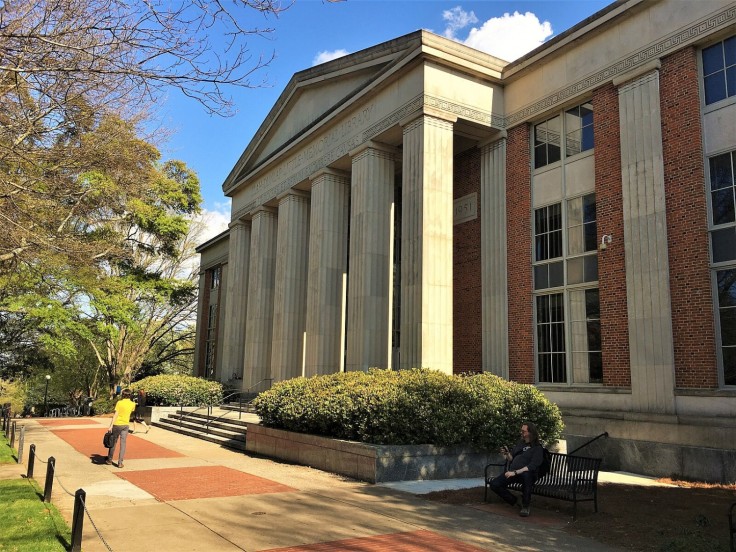Attorney for Arrested Georgia Student Protesters Blasts 'Kangaroo Court' After Suspensions Upheld
By
An attorney for several University of Georgia students arrested during an April protest of the Israel-Hamas war has cried foul after the school determined the six would remain suspended through the fall semester.
Following a 13-hour disciplinary hearing last month, the institution's Office of Student Conduct announced this week that the students --- Isabelle Phillips, Austin C. Kral, Trinity Lewis, John A. Hunter, Zeena Mohamed and Aidan L. Heinze --- are also barred from being on campus until Jan. 1, and would be on probation for the remainder of their time at the university, according to the Athens Banner-Herald.
The students can still appeal this decision.
Attorney Josh Lingsch called the hearing "nothing more than a kangaroo court," in a Thursday statement to the Associated Press.
The hearing, requested by the students, was conducted by a panel consisting of two students and one faculty member. During the hearing, the students claimed that police used force to end their protest when they attempted to comply with orders to move. They reported being placed on interim suspension and accused the university of attempting to "suppress, harass, discriminate against, and unjustly sanction" them.
University officials, however, maintained that the April 29 encampment put students and faculty in danger.
"The University will continue to enforce our policies to protect the free expression rights of all members of our community while recognizing that such activities must comply with applicable laws and policies," university spokesperson Greg Trevor told the AP in a statement.
As Israel's 10-month conflict with Iran-backed Hamas in Gaza continues, pro-Palestine protests and encampments have emerged on college and university campuses across the country. Faculty and students have been arrested for participating in the gatherings, and some institutions canceled their spring graduation ceremonies in response.
In response, more universities are adopting stricter protesting policies for the upcoming fall semester. Meanwhile, other universities are facing lawsuits from protesters punished for their involvement in demonstrations earlier this year, as well as from Jewish students seeking greater safety and accountability from university officials.
© 2025 University Herald, All rights reserved. Do not reproduce without permission.








